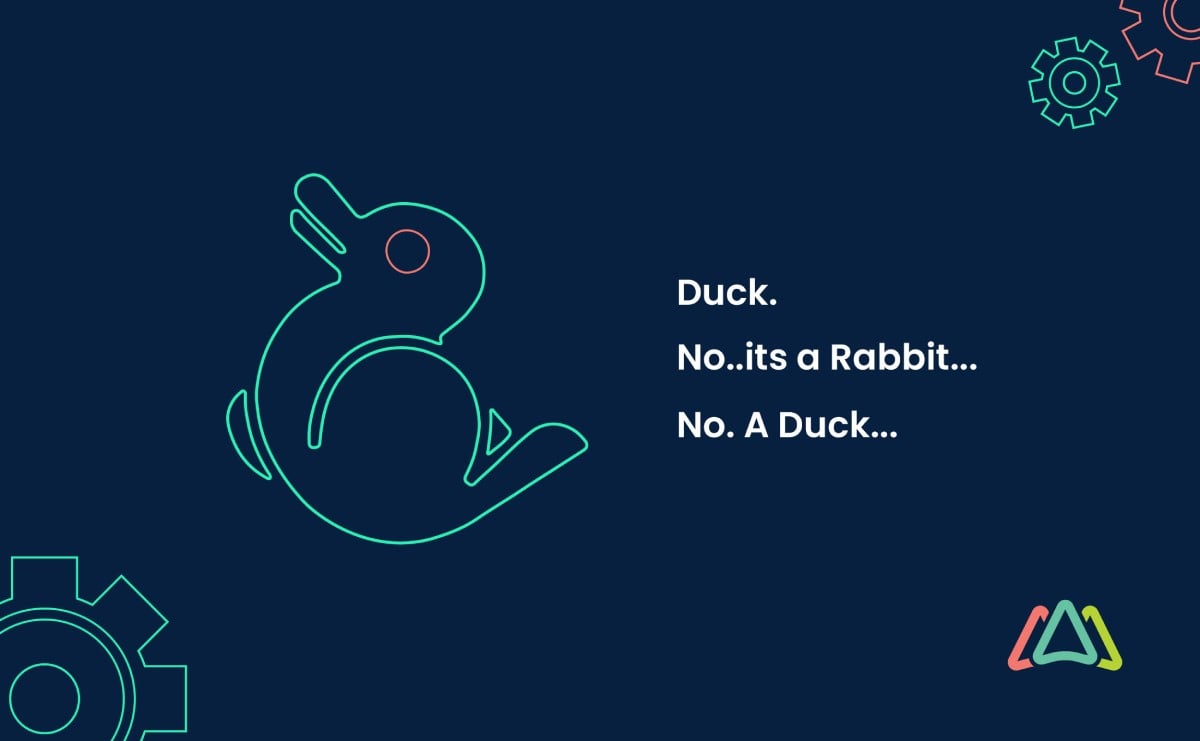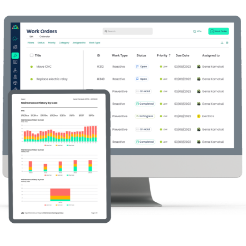
Are biases impacting the way you manage your maintenance operations?
I am not a huge tennis fan. But, I can’t help but have a few thoughts on ‘Nick Krygios.’ This is all thanks to the attention the media has given him during the past five years. Last year, Krygios found himself in hot water when the US Open fined him on multiple counts of misconduct. This didn’t surprise me because unknowingly, I had developed the perception of Nick Krygios as a troublemaker due to the negative media coverage. My slanted view of him is an example of confirmation bias; a tendency to interpret new information as confirmation of a person’s existing beliefs. Confirmation bias is one of many biases that affect our perceptions and views. In fact, there are over fifty cognitive biases we confront daily.
Our behavior, decision-making, and thought processes are influenced by a mix of beliefs, emotions, and yes, biases. It’s not uncommon for people to build strong views toward an argument or group based on how they feel. Our views are seldom based on facts and real data. It’s no wonder, we have developed baseless stereotypes of NFL players, celebrities, politicians, and others in the spotlight. Biases also extend to our beliefs and feelings toward family, work, and society. This is human nature and how we operate in our day-to-day lives.
When biases influence decisions made in the business world, their economic impact needs to be considered. The connection between biases and economics was first identified and demonstrated by Nobel laureate, Daniel Kahneman. His work paved the way for the field of behavioral economics.
It all began with Daniel Kahneman
Economic theory assumes that market participants act in ways that are motivated by self-interest which leads them to make rational decisions even in complex situations. This assumption is based on the notion that market participants conduct themselves rationally. Daniel Kahneman and Amos Tversky challenged this hypothesis. A recent example of this is how people initially responded to the COVID pandemic. This once-in-a-century global crisis exposed that we are all but rational when faced with uncertainty.
In 2002, Professor Kahneman was awarded the Nobel Memorial Prize in Economic Sciences. Kahneman, a psychologist, began his award-winning research in the late 1960s along with his colleague, Tversky. Kahneman and Tversky are credited with developing Prospect Theory and its extension, Loss Aversion. Prospect Theory deals with how human judgment plays a role in decision-making. As part of their study, they drew on cognitive psychology to show how mental processes shape the way we judge and make choices and decisions. To illustrate this they tested their theory within the context of investing and revealed that a loss of $100 causes more duress than the happiness of gaining $100.
Daniel Kahneman’s path-breaking work had a huge impact on business psychology. His work led to questioning how business decisions are routinely influenced by heuristics and bias. Kahneman and Tversky argued that humans are not rational beings because they are vulnerable to subtle cognitive influences or tricks. As a result, these attitudes cloud daily judgments and decision-making. This research has helped the business world come to appreciate the role of cognition on human behavior and decision-making over the last few decades.
Biases are evident in all aspects of business and can even be found on production floors. Maintenance management, both at the operational level and the strategic level are subject to the risk of biases.
Biases that Affect Maintenance Departments
Before we move on to how bias plays out in maintenance management, let's revisit Kahneman’s Prospect Theory. The theory provides a reference point from where all the following biases can be explained. Prospect Theory proposes that our reference points and our expectations of outcomes influence our economic decisions. Below is a review of several kinds of biases that play out in maintenance departments across businesses.
Anchoring Bias
Maintenance managers are faced daily with a number of dilemmas such as: How to identify which equipment frequently breaks down and how often? Should we continue to maintain an asset that keeps failing? Or call it a day and request approval to replace it?
Anchoring bias describes our tendency to rely too heavily on the first piece of information we receive regardless if the information is accurate or not. The first piece of information is an anchor, or reference point used to make subsequent decisions. When maintenance managers are confronted with some of the issues described above, anchoring bias can cause them to make poor decisions if the first bit of information is not accurate, or they give it too much weight and fail to consider the important information that follows.
Sunk Cost Fallacy
Sunk cost fallacy involves managers deciding to continue down a path that is not working due to time, money, and resources invested. Basically, managers often won’t abandon a strategy or plan even when it is failing due to their investment in it. Examples of how this relates to the maintenance world are;
- Continuing to maintain a piece of equipment, even when it’s reached its end of life and further maintenance is a dead end. Basically, kicking the can down the road.
- Continuing to try to implement maintenance software that clearly won’t work for the maintenance operation
While there may be some short-term cost savings, these decisions don’t work out in the long run and cause more damage. Maintenance professionals should be cognizant of this bias and know when it's time to call it quits and walk away from a plan that won't work.
Status Quo Bias
In the workplace, too often we hear, “This is how it has always been done.” Or, “You don’t have to reinvent the wheel.”
These sayings are examples of the status quo bias. Old and familiar ways of doing things are relied upon because they may be sufficient and work out ok. People have a tendency to avoid change as there is uncertainty with something new and often it creates challenges. This is why some resist exploring new and more efficient approaches. If a business’s objective is to keep things as they are, then the status quo is fine. But if the goal is to improve and grow, the status quo won’t cut it. Managers should always be looking for new and better ways to accomplish their objectives.
Confirmation Bias
Maintenance managers are not immune to confirmation bias. Because of their deep knowledge, high skill level, and years of experience, maintenance managers hold strong beliefs about their field of expertise. As a result, they often hold onto their way of doing things and at times are not easily swayed into trying something new. ‘Groupthink’ has a similar effect. This occurs because of a natural desire for consensus. Unfortunately, these biases can have a negative impact on some of the decisions managers have to make. Together, confirmation bias and ‘groupthink’ can result in decisions being made that are not necessarily in the interest of the business, but serve the individual or team they work with.
More Biases that impact the Workplace
As you start observing your decisions in the workplace, you will soon notice how you operate based on heuristics, emotions, and stressful situations. Here is a list that may be helpful as you identify the various biases that may be present at work. Take notice of the ‘fundamental attribution error,’ ‘omission bias,’ and others. Also note, these biases are not exclusive to maintenance departments or work in general… They are present in everyday life and impact our decisions and attitudes.
Back to where we started, with the tennis US Open still months away, there is still time to develop a renewed outlook on the contenders including ‘Nick Krygios.’
In subsequent updates or in new blogs, Click Maint will also highlight the role a CMMS plays in addressing bias in maintenance management.
TABLE OF CONTENTS
Keep Reading
Ever find yourself checking into a luxury hotel and expecting a relaxing stay, only to find a ...
11 Apr 2025
Organizations are witnessing swift changes in the business environment and confronting a ...
8 Apr 2025
Last month, news outlets and the entire internet was abuzz with the return of NASA astronauts ...
3 Apr 2025
What comes first - CMMS or predictive maintenance? If your answer is either, it is correct. ...
28 Mar 2025
Artificial intelligence (AI) talk has become commonplace. Today, engaging in business-focused ...
27 Mar 2025
Imagine a world where machines predict, diagnose, and fix their issues before they fail. This ...
25 Mar 2025
A facility maintenance plan is at the core of a facility’s operations. This organized ...
21 Mar 2025
Think of managing your maintenance operations like managing a championship sports team. Just ...
21 Mar 2025
The maintenance sector is battling a severe talent shortage that threatens to undermine ...
7 Mar 2025
Manufacturing maintenance is the backbone of industrial efficiency, ensuring machines run ...
5 Mar 2025
No one likes playing a guessing game when equipment breaks down. Yet, maintenance teams often ...
4 Mar 2025
The size of the preventive maintenance software market is discussed in millions of dollars, ...
4 Mar 2025
The organizational structure and corporate hierarchy vary from company to company. Large ...
28 Feb 2025
Maintenance procedures are essential for ensuring the longevity and reliability of machinery ...
21 Feb 2025
Sustainability is no longer just a buzzword; it's a critical component of corporate social ...
20 Feb 2025
A Computerized Maintenance Management System (CMMS) relies on accurate, well-organized data ...
18 Feb 2025
In an era where technology drives operational efficiency, Computerized Maintenance Management ...
14 Feb 2025
A Computerized Maintenance Management System (CMMS) is a key component of modern maintenance ...
13 Feb 2025
Introduction Maintenance management is the foundation of maintenance operations in industries ...
11 Feb 2025
Introduction A Computerized Maintenance Management System (CMMS) is software designed to help ...
7 Feb 2025





